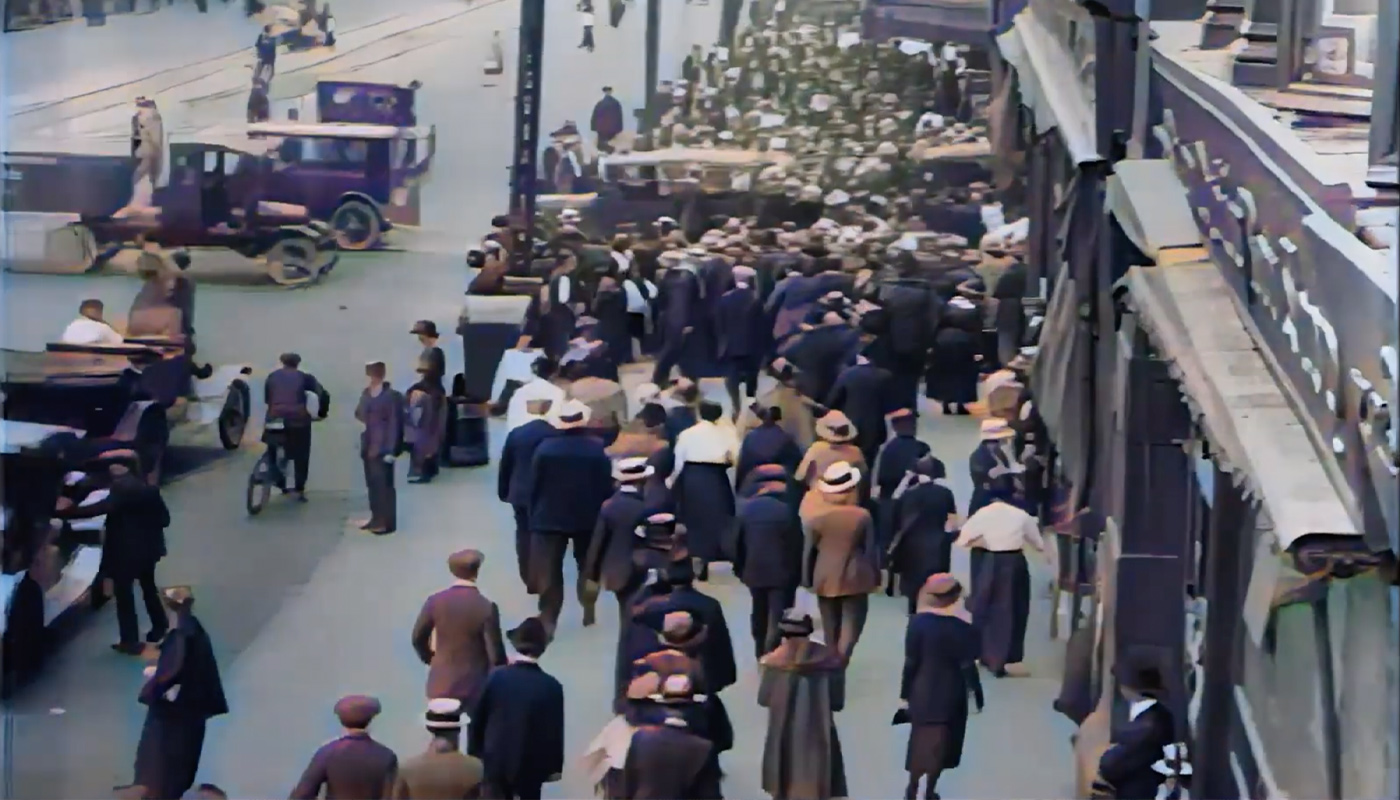
News writer; Opinion columnist
When most people think of Michigan, they think of Motor City and Mo Town. For much of the 20th century, Detroit and its surrounding cities were the center of the automotive universe, mass-producing more cars and trucks than anywhere else in the world.
Mo Town's roster of artists, from the Temptations to Smokey Robinson to the Jackson 5, created an R&B soundtrack that has resonated with generations of fans and turned young talents into global superstars.
However, Michigan supported another industry that was just as prosperous: the illegal lottery. Underground lotteries thrived in the Great Lakes state, employing tens of thousands of people, generating millions of dollars in economic activity, and creating a cast of wild and devious characters.
This is the true story of the fortunes won and lost in Michigan's illegal lottery.
Detroit
While lotteries have been part of American history since before the Revolutionary War, Congress effectively banned them in the 1880s following a series of lottery-related tax evasion and bribery scandals.
However, passing laws against the lottery did nothing to diminish Americans' appetite for playing games of chance, and illegal lottery games quickly sprang up across the country, including in Michigan. In 1887, approximately 160 “policy shops,” locations where illegal lottery tickets could be purchased, were operating in Detroit.
The games grew even more popular as Michigan's population exploded in the early twentieth century, primarily driven by a significant growth in manufacturing jobs. The car industry, in particular, attracted people from all over the country with the promise of steady work and good wages.
By the 1920s, the state had a large and thriving working class with money to spend and an appetite for playing the lottery, which the city's organized crime figures were happy to meet.
The Numbers racket
Michigan's most popular illegal lottery game was the Numbers Game or Numbers Racket. The game is thought to have been created in Harlem, New York, in the 1900s, but it quickly became the most popular form of illegal lottery across the country, including in Michigan.
The game was successful because it was cheap, easy to play, and fair. A ticket could be purchased for as little as a penny, and while the payouts were small compared to today's billion-dollar jackpots, the odds of winning were relatively good.
All a player had to do was pick a number between 000 and 999, and if their number came up, they won.
Winning numbers were selected based on publicly available numbers that couldn't be rigged. For example, the last three digits of the stock market's total value in a day could provide the winning number. The game grew so popular that winning numbers were printed in the newspaper.
Players could buy tickets in bars, nightclubs, candy shops, or almost any place where people gathered socially. Players would even buy special books to help them understand what numbers they should play based on their dreams.
Because the game was illegal to play, it was entirely controlled by organized crime figures, who managed the game, handled the payouts, paid bribes to the police, and collected the profits.
The Purple Gang
In the 1920s, the numbers racket was primarily controlled by the notorious Purple Gang, a criminal organization mainly made up of Jewish immigrants from Detroit's Lower East Side. The Purples were led by the brothers Raymond, Joseph, Isadore, and Abraham Burnstein.
They started as a group of street thugs who made money through crimes like hijacking and shaking down store owners for protection money. However, they broke through into the big time in the 1920s when the 18th Amendment to the Constitution was ratified, which banned the sale of alcohol in the United States.
Much like banning the lottery didn't make it any less popular, banning liquor didn't stop people's desire for it. Because Michigan bordered Canada, where alcohol was still legal, it became an important entry point for smuggling liquor into the country.
Through a combination of organization and brutality, the Purples took over the main smuggling routes, and they quickly became wealthy by distributing whiskey all over the country, including to Al Capone in Chicago. As their power and influence grew, they took over other criminal schemes, became the dominant players in the city's numbers racket, and helped it grow by promoting it and opening stores and nightclubs where people could buy tickets.
However, their reign as numbers kingpins did not last long. By the 1930s, the Purples were being torn apart through a combination of attacks from rival gangs and aggressive prosecutions from the police.
After murdering three of their rivals in a single night, leader Raymond Burnstein and two of his chief lieutenants were arrested, tried, and sentenced to life in prison. While remnants of the gang remained, the Purples ceased to be a significant factor in the Detroit underworld, and they lost control of the numbers to a new group.
John Roxborough
The demise of the Purple Gang provided an opportunity for the rise of John Roxborough. While Roxborough is best known as the manager of heavyweight boxing champion Joe Louis, he was also one of Detroit's most prominent numbers racket operators.
Whereas the Purples were known as wild and violent criminals, Roxborough brought a more professional outlook to running the game and operated it as if it were a legitimate business. He started by opening a real estate and insurance company to serve as a front and a method for him to launder his profits. He made a point of presenting himself as an honest businessman and family man to keep police unaware of his illicit activities.
Every day, numbers runners would flood his office with cash and betting slips, and teams of accountants would count the money, track the numbers, payout winning players, and handle the payroll for the thousands of people involved in Roxborough's organization.
Treasury agents estimated that at the height of his power, Roxborough employed approximately 6,000 people, making his organization one of the state's biggest employers.
Roxborough's reign lasted for approximately twenty years until he was finally arrested along with several corrupt police officers and a former Detroit mayor in a major crackdown against the game in the 1940s. In 1944, he was found guilty of racketeering and bribery and served two and a half years in prison.
When federal agents raided Roxborough's offices, they found well-maintained ledger books that gave them insight into the scope of his operation. His game collected $800,000 in revenue annually and made a weekly profit of $6,000. Adjusted for today's dollars, that's the equivalent of nearly $17.5 million in revenue and $130,000 in weekly profits.
Eddie Wingate
By the 1950s, John Roxborough was out of prison but also out of the game. He took his money and retired, leaving a space open for a new player—a space that Eddie Wingate was happy to take over.
Like many Michigan residents, Wingate was born in the South to a poor black family. He dropped out of school to work on a farm, chopping wood and picking cotton for just $2 a day. He moved to Detroit in his 20s because he heard wages were high and jobs plentiful.
Initially, he worked in a Ford factory, where he learned about the numbers racket. Wingate was an ambitious man who decided to go into business for himself, running a numbers game for his fellow line workers.
From there, his business grew and became wildly successful. He reinvested his money into legitimate businesses such as restaurants, hotels, and real estate. He also opened Golden Road Records, a record label that launched the careers of musical artists such as Edwin Starr, The Parliaments, and The Fantastic Four. He was so successful as a music producer that Mo Town founder Barry Gordy bought his label for one million dollars.
Unlike Roxborough, who presented himself as a gentleman and business leader, Wingate was known as a genuine tough guy who even intimidated La Costa Nostra, the Italian mobsters who ran large parts of Detroit's underworld.
He was a dominant figure in Detroit's numbers racket from the 1940s until his arrest in 1977.
Wingate was caught up in an attempt by the federal government to crack down on the game across the country. Despite being a major operator, he only paid fines for tax evasion and served no prison time. However, by this point, Wingate was almost 60, and the growth of drug trafficking was making Detroit more violent.
He decided to retire and moved to Florida before eventually settling in Las Vegas, where he passed away at the age of 86. Today, many people in Detroit see Wingate as a hero because of the artists he supported and the money he reinvested into the community.
The end
The size and scope of Michigan's numbers racket only continued to grow despite aggressive federal prosecutions against operators. The game's popularity and associated profits meant that criminals would continue to provide the game to players who were willing to buy tickets.
However, as the famous saying goes, if you can’' beat 'em, join 'em. In 1971, Michigan state lawmakers passed legislation that legalized the lottery and made all forms of gambling a state-regulated business. Now, instead of buying tickets from shady gangsters, anyone could pop into their local liquor store or gas station and buy a Michigan Lottery ticket.
Although the odds of winning the legal lottery were now much longer, the larger prizes created excitement that the low-stakes numbers operators just couldn't match.
While the illegal version of the game lasted for a few more years, eventually, most numbers players became legal lottery players, and after almost a century of dominance, the numbers racket was brought to an end in Michigan.


















Comments